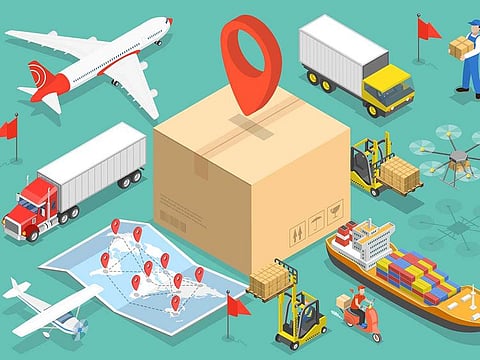Gulf states can make an immediate impact on Shanghai Cooperation Organisation
An expanded Shanghai Cooperation Organisation will be about economic influence

The Shanghai Cooperation Organisation, which held its recent summit in Samarkand, is gaining in importance, especially after the GCC countries announced their intention to join. The SCO’s current eight members have welcomed the GCC, which were granted the status of ‘dialogue partner along with Egypt and which constitutes a significant weight.
Estimates about SCO’s future role have varied as some consider it as a rival to NATO, while others view that its structure is close to the European Union’s. But the truth is quite the opposite since it includes countries with relations that are characterised by turmoil and disharmony. For example, relations between China and India, Kyrgyzstan and Tajikistan, and Azerbaijan and Iran, which recently joined, as well as Turkey and Armenia, which have shown interest in joining, apart from the differences between India and Pakistan.
Such a canvas of members resemble abstract art and cannot be transformed into a military and security alliance, such as NATO or into a homogeneous economic unit similar to the EU. This means that economic cooperation will form the backbone of the relations between the member-states of the Shanghai Organisation, which was founded more than two decades ago.
One of the priorities of cooperation lies in the pursuit of the establishment of a free trade zone, which will give the SCO global heft, especially since it comprises 40 per cent of the world's population and 20 per cent of global GDP. The GDP will rise with the accession of countries with economic weight such as the UAE, Saudi Arabia, Egypt and Turkey. In this case, the organisation will constitute the world’s largest free trade zone, giving its members manifold gains, and will lead to shifting the global trade balance from the West to the East, where China's Belt and Road project will play a key role in this transition.
West’s worries over economic clout
There are economic and commercial factors, natural resources and geopolitical influences that will contribute to the process. This is what worries the West for several reasons. Among these is that China is the world’s second largest economy.
China and India are the largest importers of oil and gas, while Saudi Arabia, Russia, the UAE and Kuwait are among the largest oil producers. Meanwhile, Qatar, Russia and Iran are among the largest producers of natural gas, giving the SCO enormous abilities to control the global energy market.
Due to the population density of the SCO’s countries spreading across a geography, it is considered the largest market for the products of all kinds. If a free trade zone is created, SCO’s member states will enjoy large markets that will lead to the development of various industries, including hi-tech, many of whose raw materials are already available in these countries.
If the members of the Shanghai Organisation succeed in establishing such a zone, this will help develop other aspects of economic cooperation. However, it will not lead to the creation of an Asian NATO in any way, as evidenced by SCO’s statements that it aims to strengthen mutual trust and good-neighbourly relations among its members and promote cooperation in the fields of trade, economy and tech. The organisation also said that its foreign policies are based on the principles of non-alignment, non-targeting of anyone as well as openness to the world.
Opens up balance of global influence
Despite this neutral preamble, it will have an effect on the reversal of the balance of economic and commercial power, towards new centers of powers. This will eventually lead to economic multi-polarity towards a more balanced global economy across commercial, financial and monetary landscapes. Herein lies SCO’s importance.
The GCC countries and Egypt have done well in their quest to join this SCO, which includes the largest consumers of oil and gas. This approach leaves doors wide open for increased GCC and Egyptian exports.
More Arab countries are expected to join the Shanghai Organisation to take advantage of commercial and economic opportunities it can provide, while being keen to develop their relations with the bigger economies such as the US, EU, UK and Japan.



